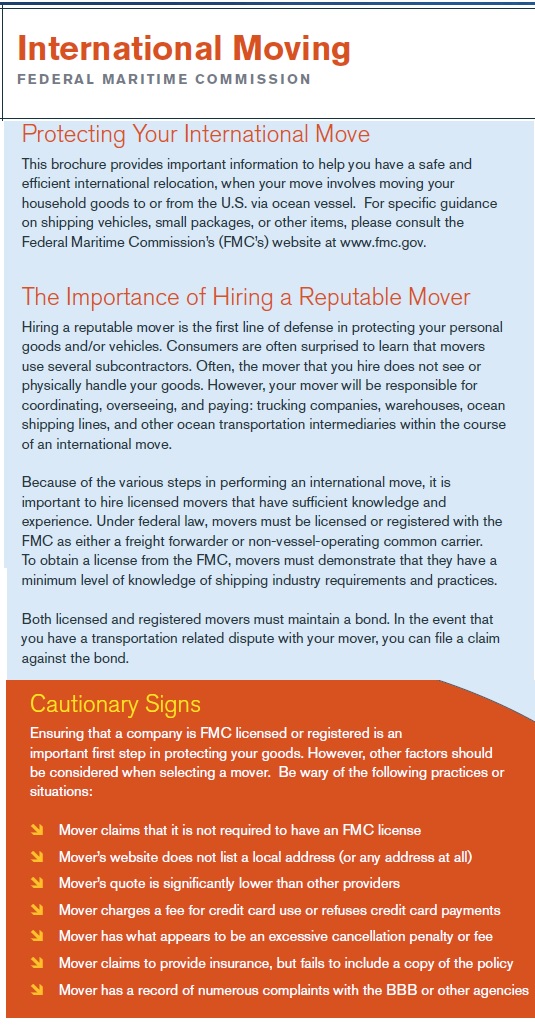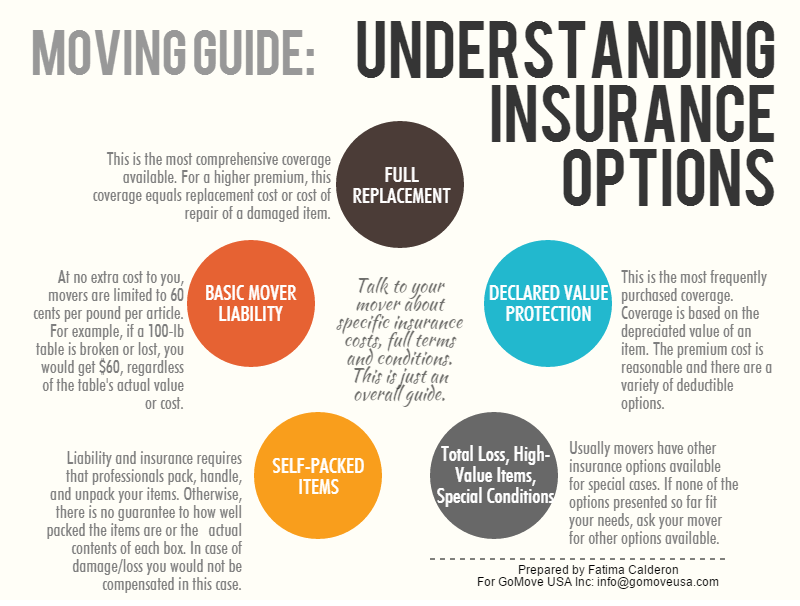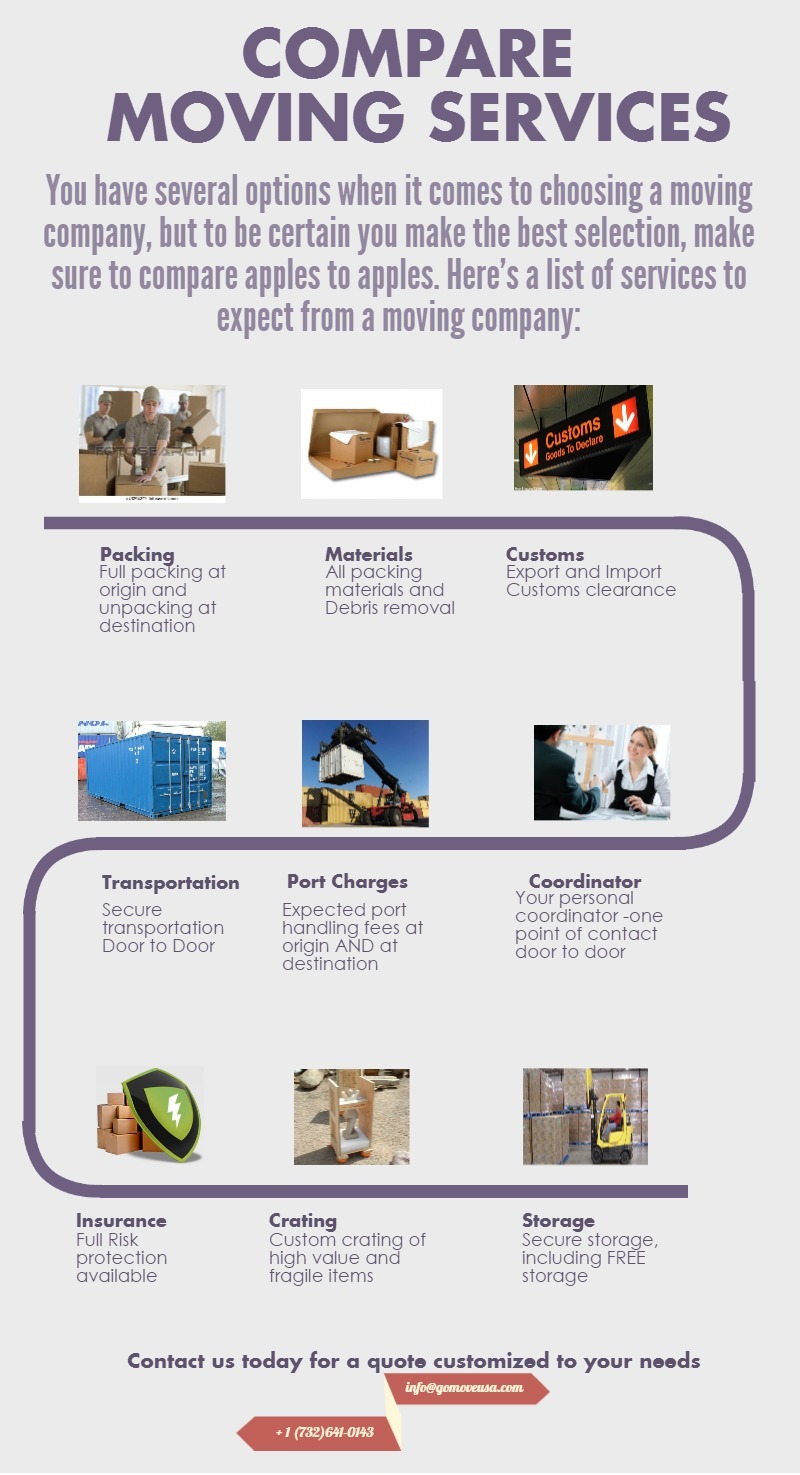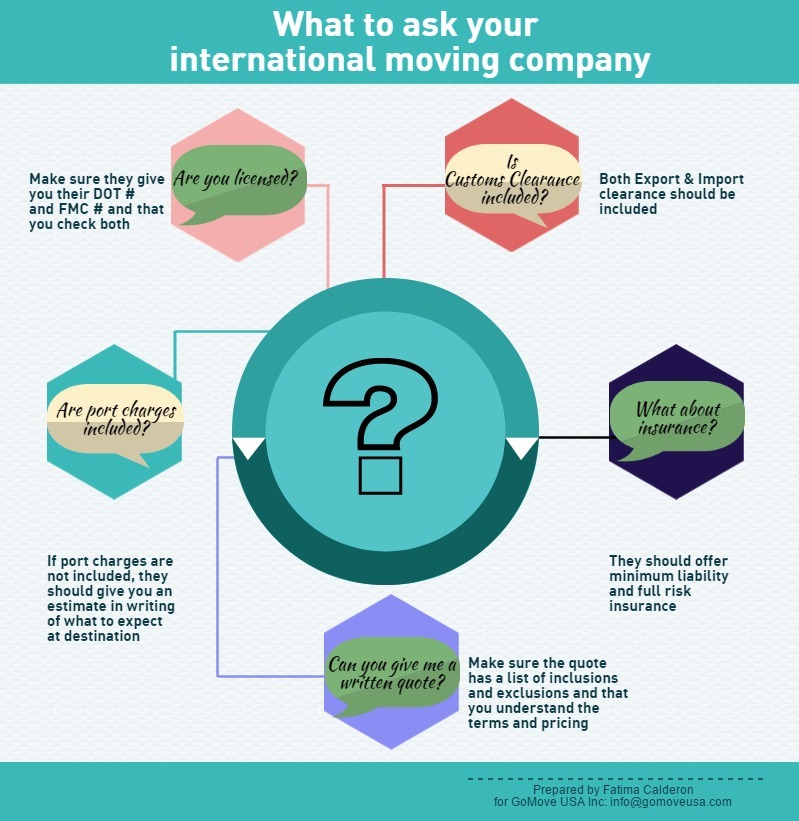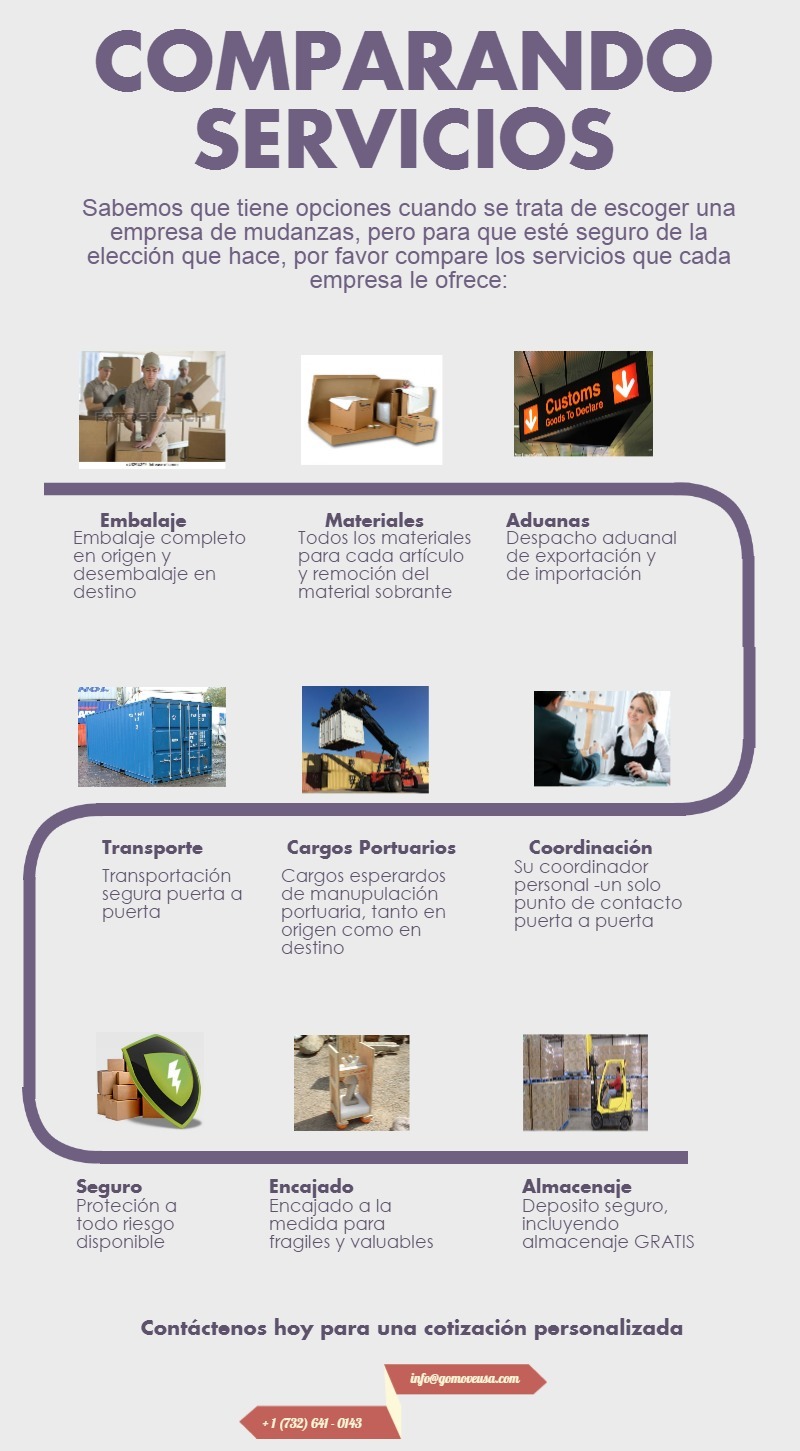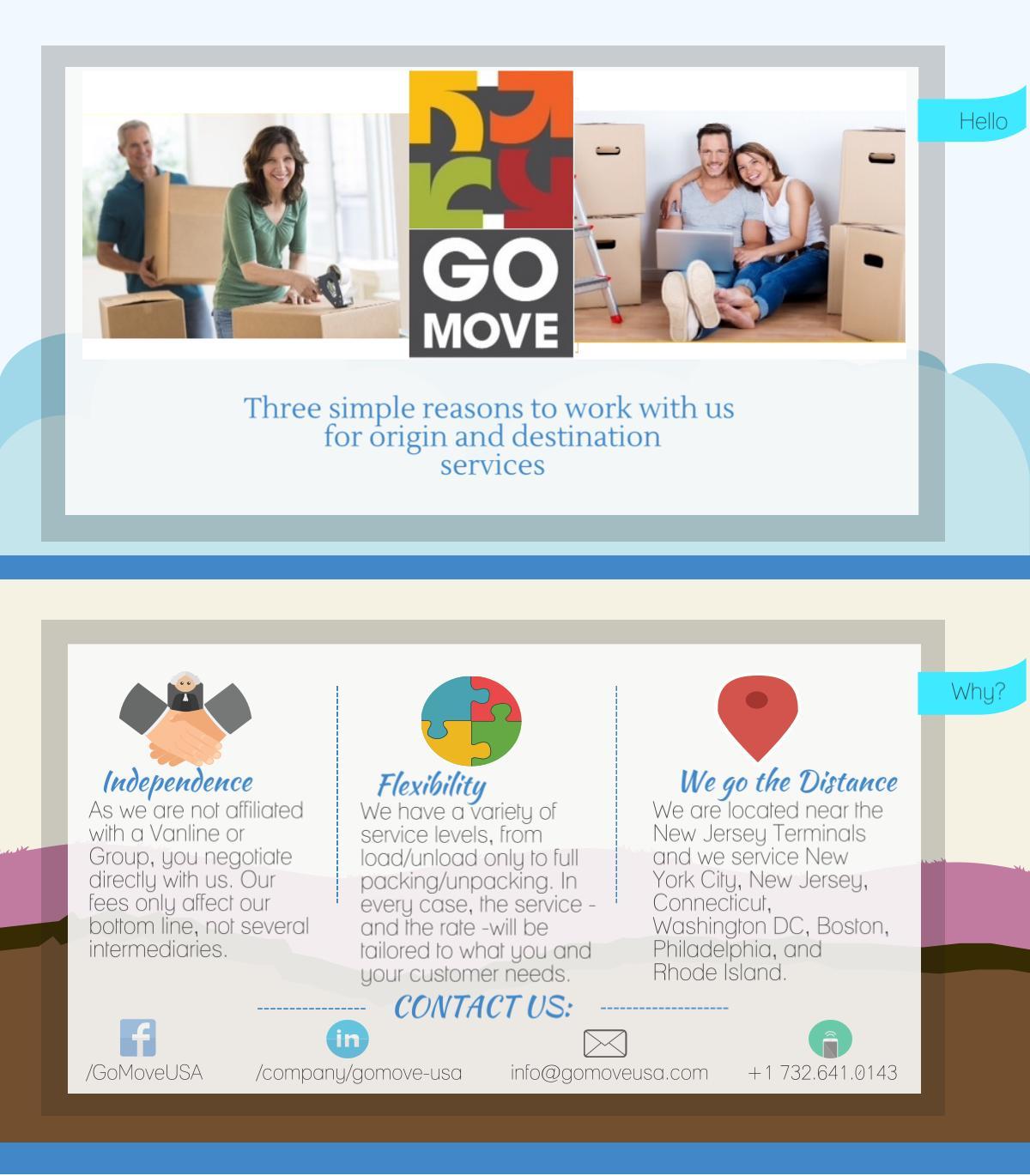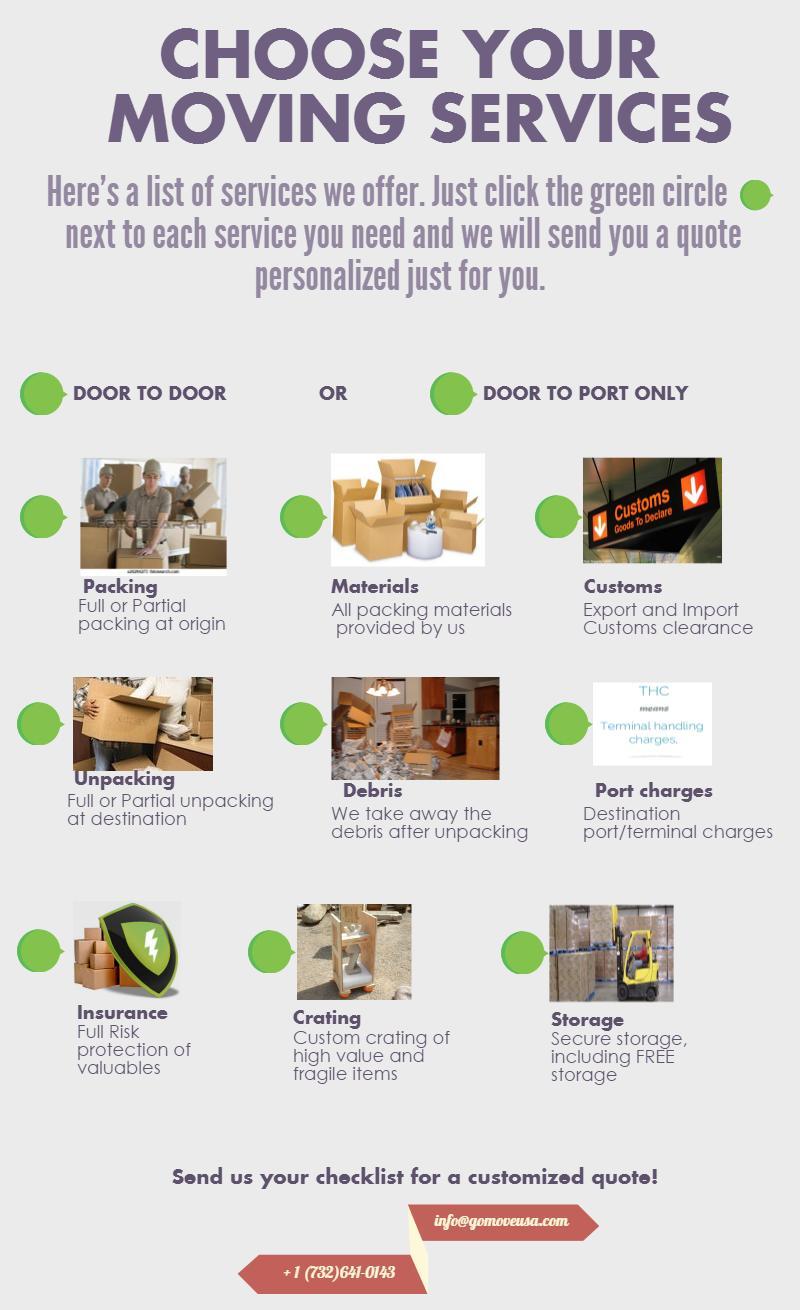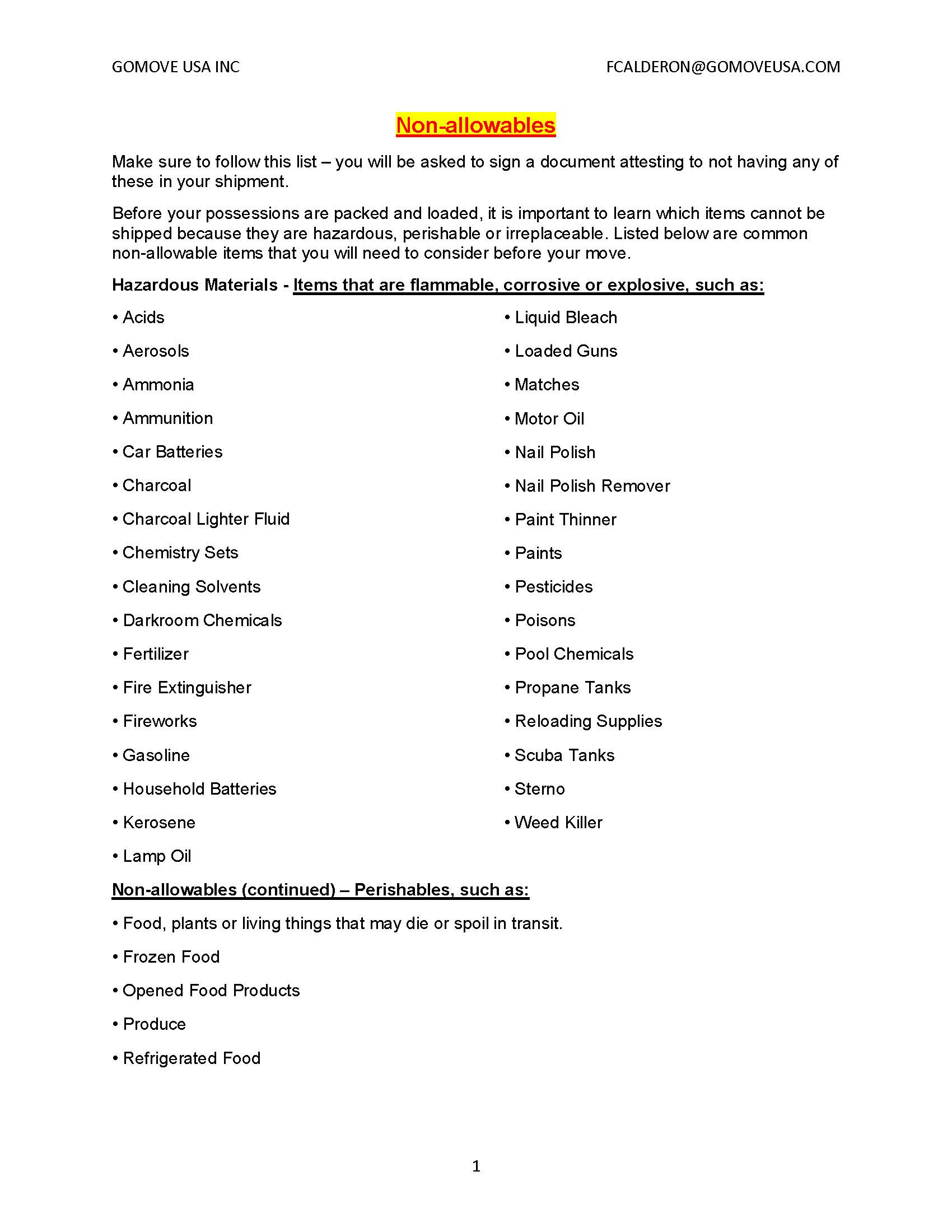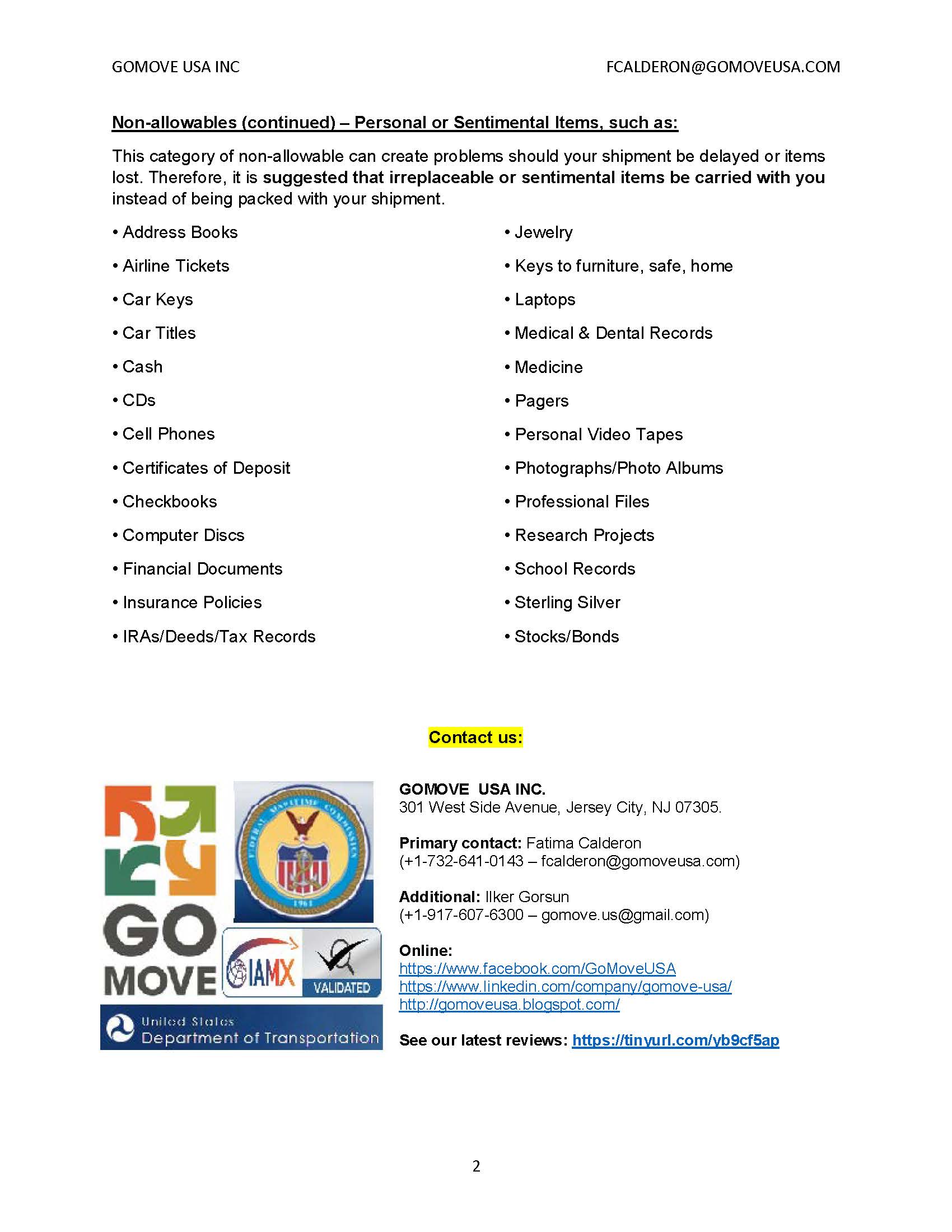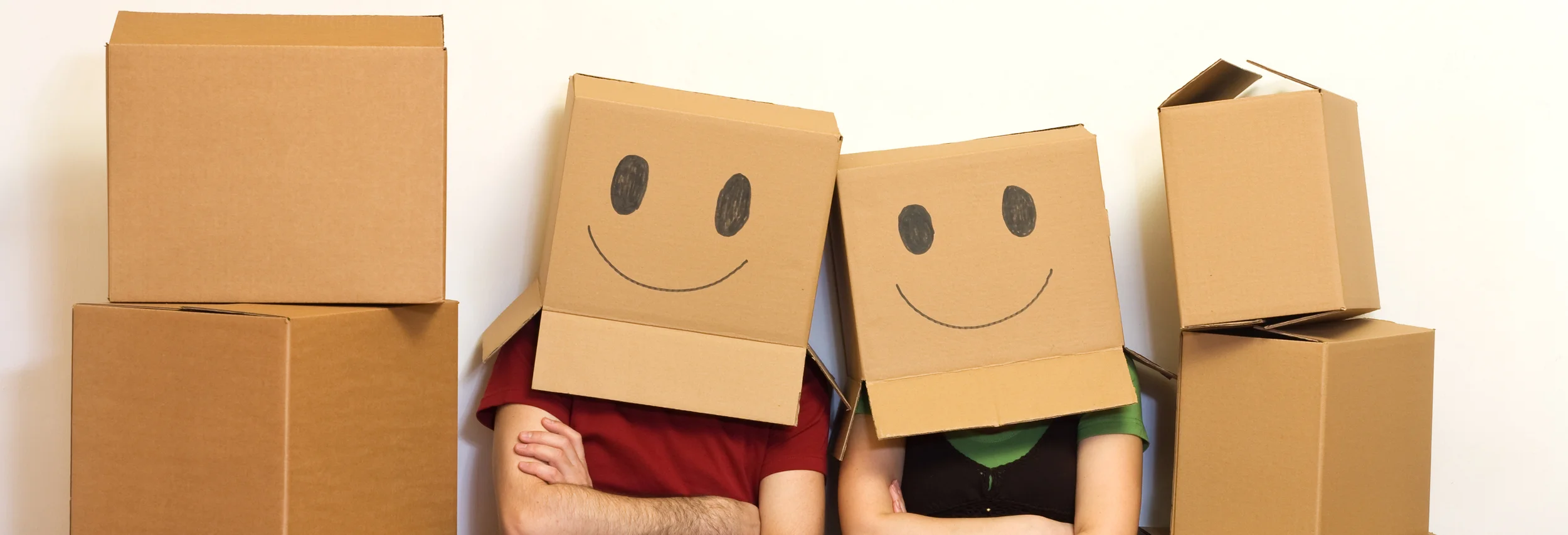




Resources
Resources
FREE TIPS AND RESOURCES
We have created this collection of tips, files and resources to help you understand better the moving process, which we believe is important to help you make an informed decision about your moving needs and the company you choose to work with.
RESOURCES:
Click on the video above
MOVING TIPS:
We want you to start preparing early for your move - It's really never too soon to begin planning. Our moving tips are here to help you during the time of your upcoming move. Click below through each of our:

Moving Tips
Moving Tips
We want you to start preparing early for your move - It's really never too soon to begin planning. Our moving tips are here to help you during the time of your upcoming move. Browse through our moving tips, checklists and reminders to help you make your move a better experience, easier than ever imagined!
PROFESSIONAL PACKING
Careful packing is one of the most important aspects of your move. Well-packed household goods stand little chance of being damaged. Also, packing room by room can help to make the unpacking and storage much less of a chore. Whether you have GO MOVE USA do the packing or you do it yourself depends on your circumstances. Some people do not have the time to devote to what can be an intimidating task. In such cases, GO MOVE USA provides the finest in safe and professional packing services. For families on a budget, self-packing can mean considerable savings.
Even if you choose to do the packing yourself, you might still consider having GO MOVE USA pack the more delicate or fragile items, such as dishes, crystal, lamps, etc. It is the best of both worlds: you’ll enjoy the security of having these more costly items professionally packed while reducing your costs by doing the bulk of the job yourself.
SELF PACKING
Many people use newspapers to pack their belongings, but keep in mind that newspaper ink has a tendency to rub off on everything it touches and can be almost impossible to remove from items like fine china. GO MOVE USA’s professional packers use “newsprint” (unprinted newspaper) as cushioning material. You can get newsprint from your local material supplier. The amount of newsprint you use depends on the items being packed. Obviously, towels or sheets in a carton require no packing material at all. For dishes or fragile items, a layer of crumpled paper should be used to line the bottom of the carton to a depth of approximately four inches. Each item should be individually wrapped with crushed paper between items as needed.
Please check detailed self packing tips: Click here

Moving Checklist
Moving Checklist
MOVING TIMELINE / CHECKING LIST
8 WEEKS BEFORE YOUR MOVE
• Contact your mover to make arrangements for moving day?
• Chosen your mover and signed the acceptance note?
• Sorted through basement, loft and garage?
• Resolved what to do with prohibited items?
• Made proper provision for pets?
• Decided whether or not you are taking your car?
6 WEEKS BEFORE YOUR MOVE
If you're moving at an employer's request - Verified what expenses and responsibilities are theirs and which are yours?
• Started to prepare your mailing list of people who need your change of address?
• Notified about your move: banks, savings accounts, credit card companies, magazine subscriptions, rental companies, friends and professionals?
• Located passports, birth/marriage certificates, motor vehicle registration and licensing documents?
• Applied for any necessary visas?
• Checked that electrical goods will work in your new home?
• Begun an inventory and evaluated your possessions. What can be sold or donated to a charitable organization? What haven't you used within the last year?
4 WEEKS BEFORE YOUR MOVE
• Separated favorite toys?
• Made sure your pet’s vaccinations are up to date?
• Submitted a Change of Address form to the post office?
• Contacted utility and related companies (gas, electric, oil, water, telephone, cable TV and trash collection) for service disconnect/connect at your old and new addresses? (However, remember to keep phone and utilities connected at your current home throughout moving day.)
• Decided whether or not to buy any new household goods - check tax refunds?
• If you're packing yourself - Purchased moving boxes from your local mover? (Pack items that you won't be needing in the next month)
2 WEEKS BEFORE YOUR MOVE
• Decided which clothes travel with you?
• Started to dismantle climbing frames/garden furniture?
• Made arrangements of connection of services at your new home?
• Returned library books?
• Contacted your relocation consultant to review and confirm all arrangements for your move?
• Withdrawn the contents of your safety deposit box, pick up any dry cleaning, returned library books and rented videotapes, etc.?
2 TO 3 DAYS BEFORE YOUR MOVE
• Defrosted the refrigerator/freezer?
• Planned simple meals for moving day to avoid using appliances?Bought plastic plates, forks, knives, cups..?
• Organized and set aside those things that you're taking with you so that they don't get loaded on the van in error?
• Cleaned garden tools, bicycles and any other gardening equipment?
• Emptied the tanks of powered tools such as mowers?
• Checked you have enough medication for at least two weeks, and ensure you have copies of any necessary prescriptions for use at destination?
• Collected traveler’s checks or local currency?
• Arranged for someone to look after the children on moving day?
• Contacted your relocation consultant to confirm arrival time of the moving van, as well as to notify them of any last minute details?
LAST MINUTE DETAILS
• Check closets, cabinets, and storage lockers for any articles overlooked.
• It is your responsibility to see that all mechanical and electrical equipment is properly serviced for shipping prior to the arrival of the moving van at your expense. If you have failed to have an article serviced, the van operator may load and haul it but will mark the inventory sheet "Not Serviced."
TAKE A LOOK AROUND:
• Water heater, main power and gas taps shut off?
• Furnace and air conditioner shut off?
• All utilities arranged for disconnection?
• Windows and doors shut and locked?
• Old house keys surrendered?
• Have you left anything behind?
• Clothes at the drycleaners, shoes at shoe repair shop?
MOVING DAY
• Make sure that someone is at home to answer the van foreman's questions.
• Walk around with the crew chief while he does the inventory.
• Read your bill of lading and inventory carefully before you sign them. Keep these -- and all related papers -- in a safe location until all charges have been paid and all claims, if any, have been settled.
• RELAX – We take care from now on!

Moving Pets
Moving Pets
MOVING WITH PETS
Moving with pets is a sensitive issue to address when relocating. Since moving can cause unneeded stress on your pets, it's important to try and reduce these stress levels as much as possible. For the inexperienced, sorting through the maze of shots, health certificates and strict quarantine regulations that vary from one country to another ads undue tension to the already complex task of overseas relocation. Here are some things you can do when moving the family pets to your new home:
• Make certain your household pet is wearing proper identification and any required license tags in case they get lost.
• Ask your veterinarian for a copy of your pet’s medical history to take with you, and be sure all shots are current.
• Shortly before the move, your pets may become nervous because of all the unusual activity. Keep a close eye on them; stress may cause them to misbehave or run off. Consider having them boarded during the hectic days.
• When you move, take along a health certificate and rabies vaccination certificate. The health certificate, signed by your vet says your pet is in good condition. The rabies certificate states when and where your pet was vaccinated.
• If you move across state lines call or write the state veterinarian for laws on the entry of animals.
If you move to another country :
• When traveling by air, contact the airline well in advance to check regulations and services.
• Consider direct flights to minimize the amount of time your pet will be confined. Select a portable air-transport kennel that’s large enough for your pet to stand and move around a bit and let your pet get accustomed to the kennel in advance.
• Don’t forget to mark the kneel with “ Live Animal”, your pet’s name, your new address and phone number.
• After boarding your plane, ask the flight attendant to confirm your pet has been loaded on the plane.
• If your pet has and ID implant, remember to have updated contact information.

Prohibited Items
Prohibited Items
RESTRICTED SHIPPING ITEMS
Make sure to follow this list – you will be asked to sign a document attesting to not having any of these in your shipment.
Before your possessions are packed and loaded, it is important to learn which items cannot be shipped because they are hazardous, perishable or irreplaceable. Listed below are common non-allowable items that you will need to consider before your move.
Hazardous Materials - Items that are flammable, corrosive or explosive, such as:
• Acids
• Aerosols
• Ammonia
• Ammunition
• Car Batteries
• Charcoal
• Charcoal Lighter Fluid
• Chemistry Sets
• Cleaning Solvents
• Darkroom Chemicals
• Fertilizer
• Fire Extinguisher
• Fireworks
• Gasoline
• Household Batteries
• Kerosene
• Lamp Oil
• Liquid Bleach
• Loaded Guns
• Matches
• Motor Oil
• Nail Polish
• Nail Polish Remover
• Paint Thinner
• Paints
• Pesticides
• Poisons
• Pool Chemicals
• Propane Tanks
• Reloading Supplies
• Scuba Tanks
• Sterno
• Weed Killer
Non-allowables (continued) – Perishables, such as:
• Food, plants or living things that may die or spoil in transit.
• Frozen Food
• Opened Food Products
• Produce
• Refrigerated Food
Non-allowables (continued) – Personal or Sentimental Items, such as:
This category of non-allowable can create problems should your shipment be delayed or items lost. Therefore, it is suggested that irreplaceable or sentimental items be carried with you instead of being packed with your shipment.
• Address Books
• Airline Tickets
• Car Keys
• Car Titles
• Cash
• CDs
• Cell Phones
• Certificates of Deposit
• Checkbooks
• Computer Discs
• Financial Documents
• Insurance Policies
• IRAs/Deeds/Tax Records
• Jewelry
• Keys to furniture, safe, home
• Laptops
• Medical & Dental Records
• Medicine
• Pagers
• Personal Video Tapes
• Photographs/Photo Albums
• Professional Files
• Research Projects
• School Records
• Sterling Silver
• Stocks/Bonds

Self-Packing Tips
Self-Packing Tips
SELF-PACKING TIPS
If you decide to do the packing yourself, you automatically assume a major portion of the responsibility for the success of the move - including that of having everything properly packed and ready for loading when the moving van arrives. All packing must be completed by the evening before moving day...only the things you will need that night and the next morning should be left for last minute packing.
In addition, your packing will be expected to meet specific standards. This means complying with the principles of good packing as outlined here, as well as following the suggestions relative to items that should not be included in the shipment.
Good packing means…
• Wrapping items carefully
• Using sturdy cartons that close.
• Making sure of a firm pack that will not rattle, bulge outward or bend

